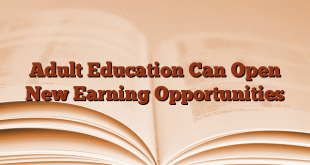The information superhighway or the internet has changed the way the world goes about things. It’s another point in a long continuum of inventions that will revolutionize lifestyles. One might ask how the ability of computers to talk to each other improves the learning process in the classroom? How does it make a difference when studying epics like the Odyssey and the Iliad? These and other questions are answered in the following passages. The Internet is more penetrating than other electronic media and is the modern engine of progress; It is the new mindset that will show a fresh approach to online education.
Personal computers and the information superhighway are rapidly changing America. The Internet is already making large amounts of information available at unprecedented speed. When this revolution is fully felt in schools, teachers and students will have virtually instantaneous access to vast amounts of information and a wide range of learning tools. If we manage the information revolution wisely, these resources will be available not only to affluent suburban schools, but also to rural school districts and inner-city schools. Broad access can reduce disparities in the quality of online education and open up new learning opportunities for children in all fields. Used well, this transformative technology can play an important role in school reform.
New technology will enable students to acquire the skills essential to succeed in modern society. Exposure to computer technology at school allows students to get acquainted with the necessary tools from an early age. By making good use of technology, they also acquire better thinking skills that help them become informed citizens and active members of the community.
The drive to bring technology into our nation’s schools extends well beyond the internet. If it weren’t for the Internet, advanced technology would still have so many valuable pedagogical applications, distance learning, collaborative learning, and so on, that would justify far larger investments than they’re considering.
Web resources are excellent research tools. But let’s not fool ourselves. Even when policymakers, practitioners, and parents have decided what their goals were, and even when the research supports one of several configurations of hardware and software, the decision is when, how, or if technology (or any other reform) will be deployed in the classroom should probably not be determined on that basis alone. Many other factors—from parental pressure to superintendents wanting to leave their fingerprints on the district to tech companies promoting their products—affect technology purchasing decisions and school allocations.
The Internet is an incredible source of information and a powerful means of communication. The ability to use new technologies is becoming an increasingly important factor in career opportunities, and the future success of today’s students will be more influenced by their understanding and ability to access and use electronic information. The increasing use of online services by children at home increases the impetus for schools to take a more active role in educating families about their use.
Schools have the potential to be entry points and online educational hubs for Internet resource exploration. Increasing parental involvement in school education programs can help address community concerns and improve the overall academic performance of their children. When educators take responsibility for helping students master technology and educating them about potential risks, students become more empowered to make smart decisions.
Multicultural education refers to education and instruction designed for the cultures of multiple different races in an educational system. This teaching and learning approach is based on consensus building, respect and promoting cultural pluralism within racial societies. Multicultural education recognizes positive racial characteristics and integrates them into the classroom atmosphere.
The concept of learning styles is rooted in the classification of psychological types. The different ways of doing this are generally classified as: Concrete and abstract perceivers and active and reflective processors.
There are many academic and psychological issues faced by minority students such as:
Not only do school programs and practices directly affect student success, but the school and community contexts in which those programs and practices take place also affect success rates. “Context” is made up of numerous factors. Some contextual variables can have a positive impact on students, while others work against student success.
The call for comprehensive school reform strongly suggests that existing educational concepts are not sufficient to promote multicultural justice. Unfortunately, the same ideas have shaped the training of prospective teachers. Their education was likely through follow-up (the process of assigning students to different groups, classes, or programs based on measures of intelligence, achievement, or aptitude), traditional instruction that appeals to a narrow range of learning styles, and curricula that exclude them , featured the contributions of women and people of different cultures. Competition drives this factory model of schooling in which students tend to be seen as products that come off the assembly line.
Education is a fundamental human process; it is about values and action. The cluster of technologies called the Internet has the ability to complement, amplify and enhance the educational process. It will shift the focus of education from the institution to the student. The Internet has come to befriend, live with, and live beyond teachers and students. African wisdom says: “It takes a whole village to raise a child”.
My personal conclusion is that all students, regardless of race, ethnicity, gender, socioeconomic status, geographic location, age, language, or disability, deserve equal access to quality and meaningful learning and success. This concept has profound implications for teaching and learning throughout the school community. It suggests that ensuring equity and excellence must be at the heart of efforts towards systemic reform in education as a whole.
Thanks to Mathew Simond | #Influence #Internet #Education #System
 eLearning Weblog The Distance Learning, Online Degree & Education Hub
eLearning Weblog The Distance Learning, Online Degree & Education Hub



